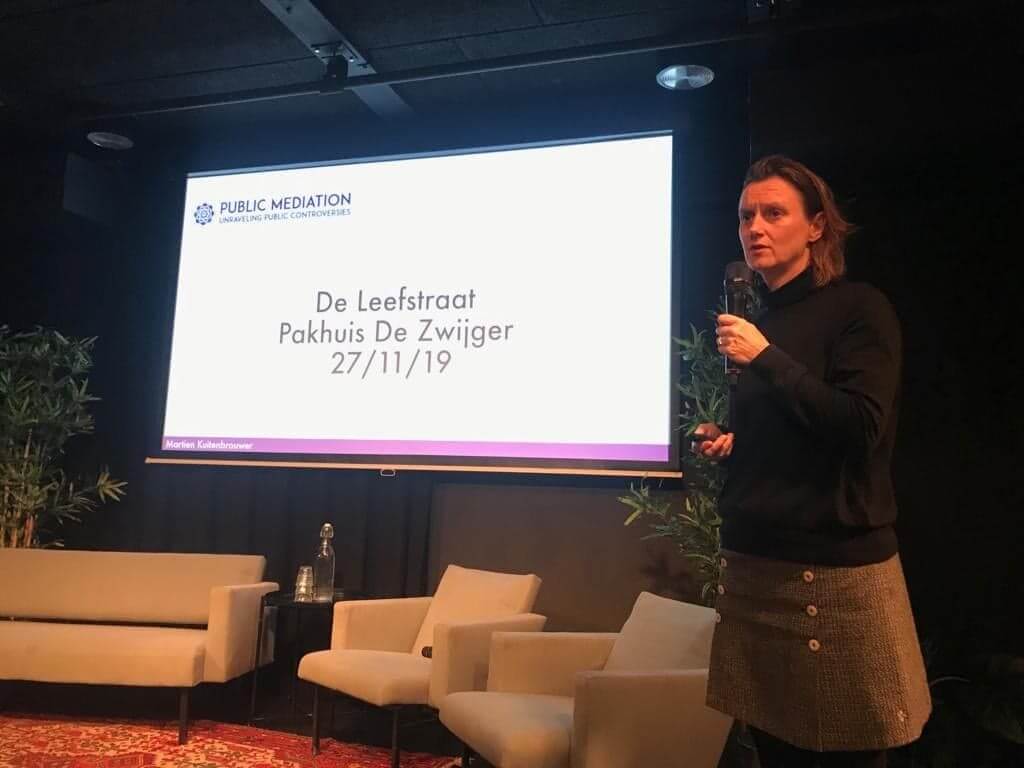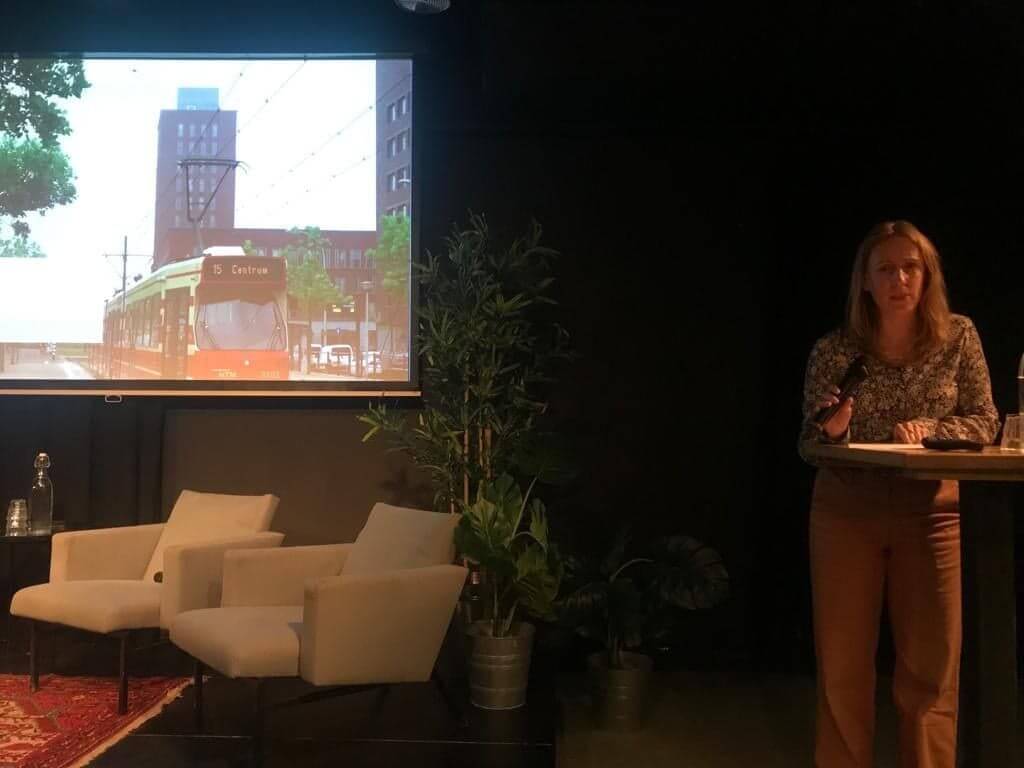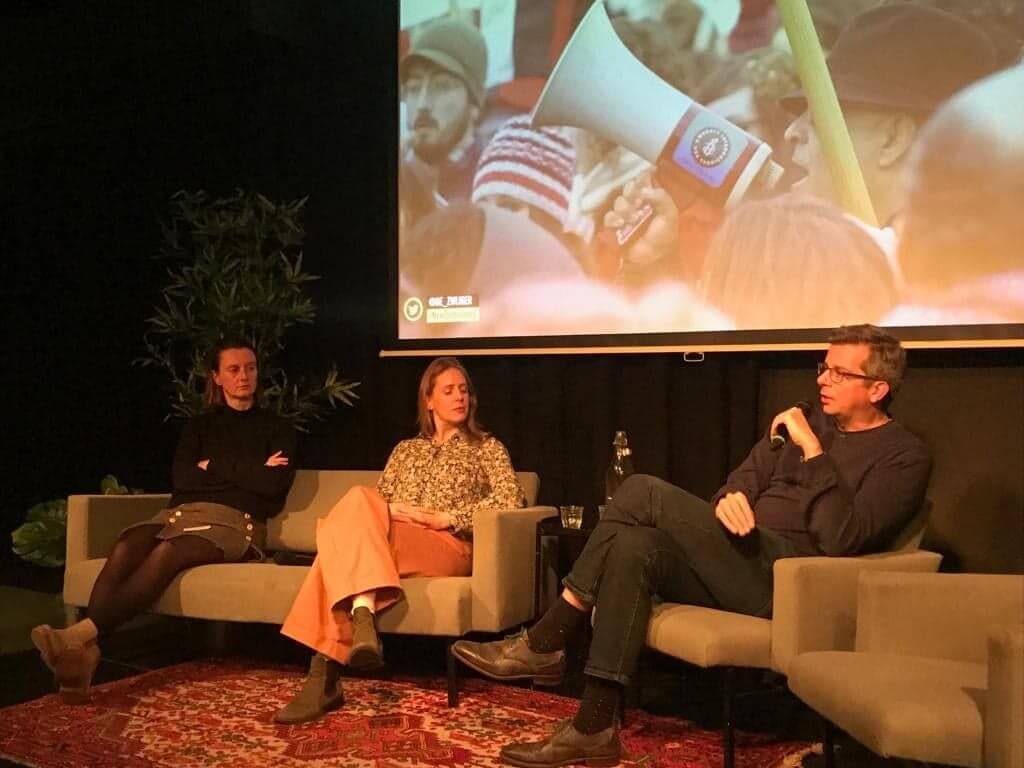Written by Mercedes Mercedes-Mercedes
Conflict is an integral part of a democratic society, when people with different ideas and interests live side by side, there is always a chance of struggle. Both between players at the local level (between citizens or between citizens and the municipality) and between local and national level (when municipalities and citizens jointly oppose national policy). So, how can conflicts be solved in a democratic way? And in what ways does conflict test, change or enrich our democracy?
Conflicts are often viewed as negative, but they also provide new opportunities in which they unleash commitment, awareness and new collaborations. To explore this Martien Kuitenbrouwer (Co-founder PM Public Mediation), Nanke Verloo (Assistant Professor in Urban Planning, Centre for Urban Studies, UvA) and Imrat Verhoeven (Assistant Professor of Public Policy, UvA), discussed existing conflicts in the Netherlands and explored democratic opportunities in conflict with active citizens, academics, the municipality and mediators.
Conflicts on three relation levels were discussed: conflict between citizens, conflict between citizens and the municipality and conflict between municipalities and national government.

“New democracy is not giving away all responsibility, but it is reformulating your role as a government, to transparently consider different interests, and give away ownership where possible” – Martien Kuitenbrouwer
Citizens vs. Citizens
Martien Kuitenbrower kicked off the session with a case study of a conflict between citizens in which she as a mediator had to step in. The case: A neighbourhood in Amsterdam partook in an initiative called the Leefstraat (Living street). For this initiative one road gets blocked off for cars and can be used as a public space where children can play on the street and events and gatherings can be held. However, not everyone in the neighbourhood felt like they were properly asked or informed about this decision. This caused a conflict between neighbours which escalated into verbal aggression towards each other. It also raised the questions: To whom does public space belong to? And who should have a say about what happens in public space? As the conflict escalated, mediators were invited to discuss the conflict together with both groups of citizens as well as the municipality. In her talk Martien Kuitenbrouwer highlighted the following opportunities in conflict:
- Realize who the key stakeholders are: realize this conflict is not just between citizen. When it concerns a citizen initiative the municipality should not stay absent, the municipality actually has a big role to play to guide decisions about public space. As a municipality, you should carefully consider what role you have to play when you facilitate a citizen’s initiative. Stimulating citizen initiatives also means setting the frameworks.
- Create understanding: Take time to unravel different storylines, Do you know the neighbourhood? What are the sentiments? Why are people angry? What was the intention and unintentional role of the government?
- Visualize citizens concerns. By mapping the different sentiments also new expectations and roles for citizens and the municipality can become clear.

“I sometimes think conflict is better than participation. It is immediately clear what everyone’s interests are. The next task is: how do you listen to each other? And you have to acknowledge that political action has different forms. ” – Nanke Verloo
Citizens vs. Municipality
Nanke Verloo discussed a conflict between citizens and municipality in Ypenburg. The case: De Cockpit, a community centre, which was lead by local citizens was being professionalized by a welfare organisation. This brought many changes to the Cockpit, such as a very different program requirements and the use of very formal language. This was upsetting to locals, especially to the locals who have been heavily involved in the maintenance of the Cockpit before. The municipality, however, did not take concerns of local citizens seriously, which made the old group of active citizens feel neglected. At the high point of their protest, the Cockpit was squatted. While this was an important political act of the group of citizens, the municipality decided not to react to the squatting. After this also various sights in the neighbourhood were vandalized. A mediator had to get involved. Nanke Verloo draws from this case to explain opportunities in conflict:
- Take emotions serious: What emotions become dominant? See informal emotional actions as political action. You can take emotions seriously without having to agree with them. Also, as a mediator do not be afraid be emotional yourself, sometimes this benefits communication more than rationalism.
- What use of language becomes dominant? Also be aware of the validity of both formal and informal language.
- Recognize and acknowledge each others critical moments.
- Use rituals and symbols to return ownership and responsibility to the people in the community.
- Listen to and intertwine stories: you do not have to agree with each other, but by recognizing each others stories you can shape change together.

“Prevent that a ‘knowledge war’ arises from a conflict – a mediator can help to bring about shared knowledge” – Imrat Verhoeven
Local vs. National
Lastly, Imrat Verhoeven presented a conflict in which municipalities and citizen opposed the national government. The case: The national government set out to build environmentally friendly windfarms in the sea within a 12km radius. The argument for building the wind mills so closely to the coast was to be cost efficient. Citizens and municipalities were not happy about the proximity, as they claimed this would destroy the view out to the open horizon which attracts a lot of tourists. So, several municipalities organized themselves in opposition to the windfarm, being supported by activists and sustainability organisations. Together they collected signatures for a petition and started a political lobby. According to Imrat Verhoeven following opportunities in conflict should be considered:
- Do not use participation for greenwashing a decision. Do not only inform stakeholders, but create a real conversation in which all stakeholders have a say.
- Opposing knowledge can further escalate the conflict. Prevent that different sets of information escalate into a knowledge war. A mediator can help with facilitating the development of shared knowledge.



